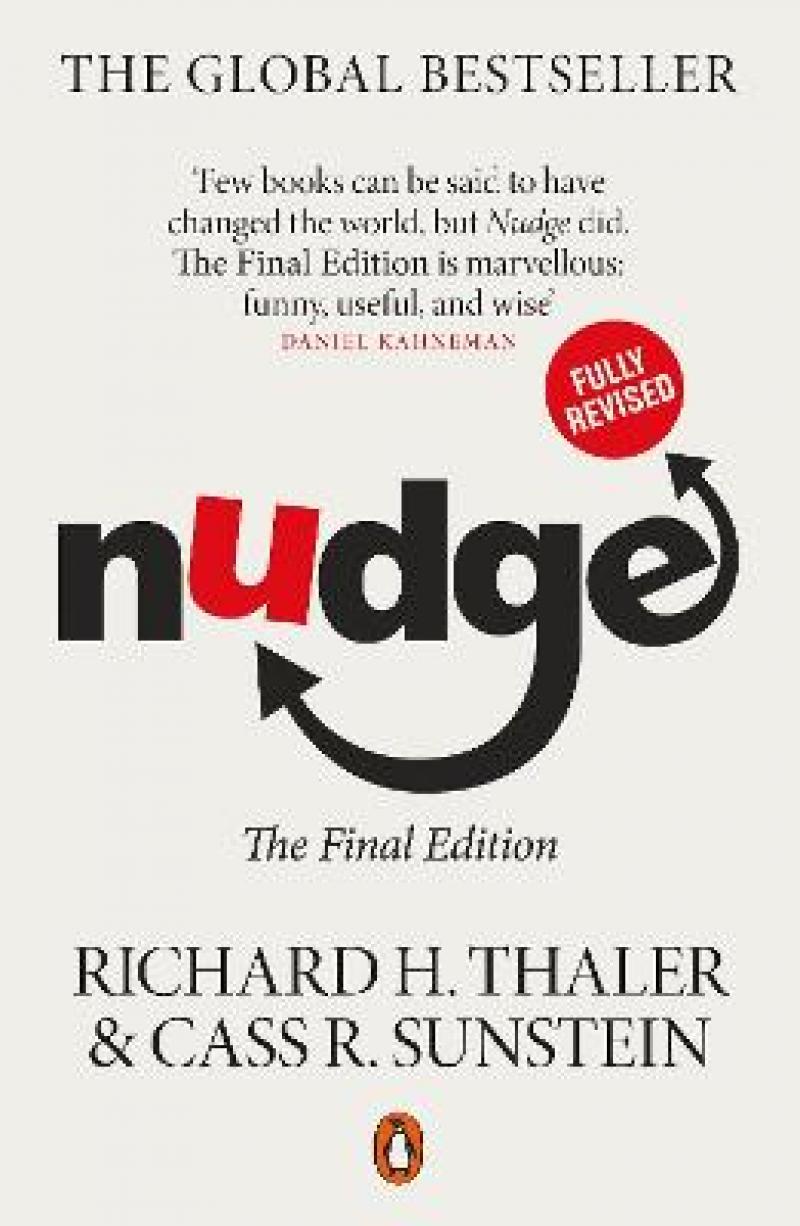<b>An immensely influential and important best-seller about how to influence people to make better decisions. </b>Here Cass Sunstein and Richard Thaler have substantially revised the earlier version in the light of new ideas, developments and research. The title represents a commitment to ensure that they do not write another version. <b>So read it now: this is the definitive edition.</b>
- Martin Wolf, The Financial Times, The Best Books of the Year
Few books can be said to have changed the world, but <i>Nudge </i>did. <b>The Final Edition is marvelous: funny, useful, and wise</b>
- Daniel Kahneman,
Nudge should be required reading for anyone who aspires to run a country, lead a company, raise a child, or make a choice. It's the gold standard for using behavioral science to guide decisions and policies, and <b>the new edition is even better than the original</b>
- Adam Grant,
Revolutionary: Once you've read it, you start to see that we are ALWAYS being nudged in some way.<b> It changes the way you see the world -- this edition even more so</b>
- David Byrne,
Nudge has changed the way we think about both business's and society's biggest problems. <b>The Final Edition is full of new insights and well worth reading </b>
- Eric Schmidt,
<b>In an age of populism, conspiracy and disinformation Nudge is the clarion call of those who are serious about progressive change and nods to the nobler virtues of purpose, persuasion, and persistence </b>
- David Lammy,
We used the core principles of Nudge when designing our protocols for resuming play during the pandemic. <b>This new edition provides a refreshed set of practical concepts </b><b>and strategies to influence decision-making for good</b>
- Adam Silver,
If you've read Nudge and think you fully grasp the concept and its uses, you are mistaken. <b>The new edition significantly deepened my understanding of what nudges are and how they can be employed. It truly is a must-read</b>
- Robert Cialdini,
<b>Probably the most influential popular science book ever written</b>
BBC Radio 4
Nudge has transformed the way individuals, companies and governments look at the world - and in the process has become one of the most important books of the twenty-first century. This completely updated edition offers a wealth of new insights for fans and newcomers alike - about COVID-19, diet, personal finance, retirement savings, medical care, organ donation, and climate change.
Every day we make decisions: about the things we buy or the meals we eat; about the investments we make and the time we spend; about our health and that of the planet. Unfortunately, we often choose badly.
We are all susceptible to biases that can lead us to make bad decisions that make us poorer, less healthy and less happy. And, as Richard Thaler and Cass Sunstein show, no choice is ever presented to us in a neutral way. But by knowing how people think, we can make it easier for them to choose what is best for themselves, for their families and for society. With brilliant insight and wonderful levity, Thaler and Sunstein demonstrate how best to nudge us in the right directions, without ever restricting our freedom of choice.
